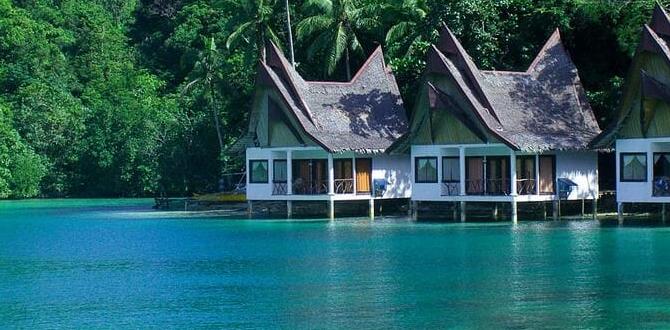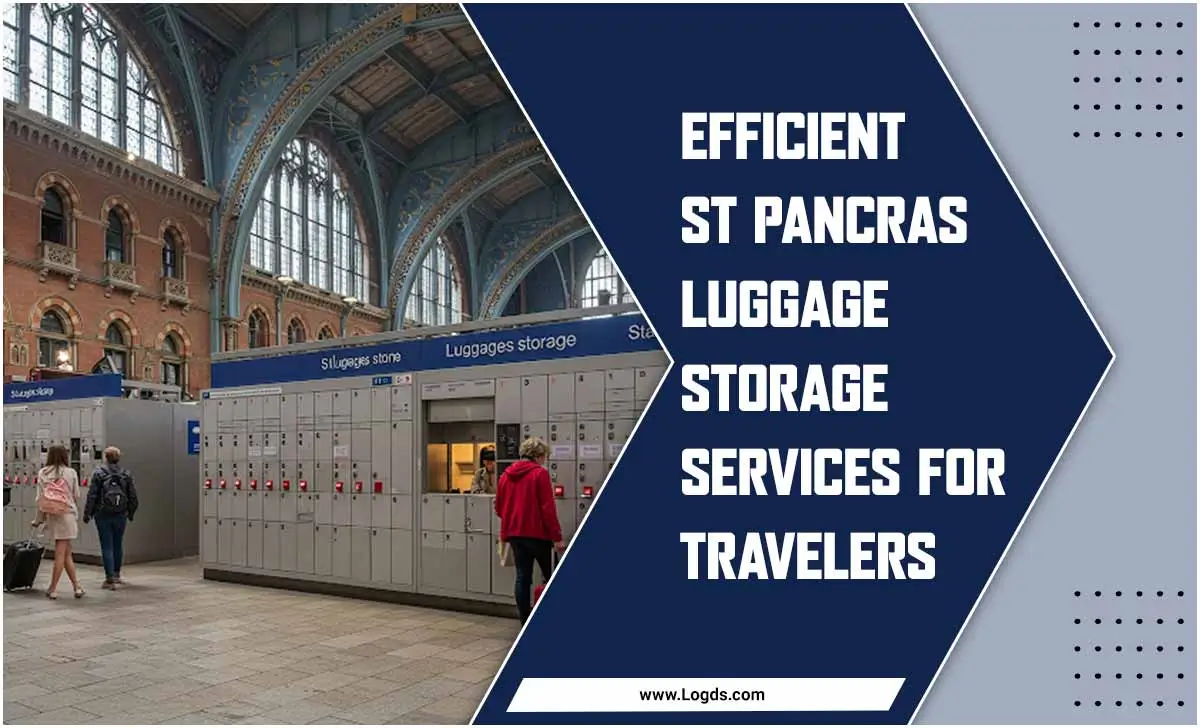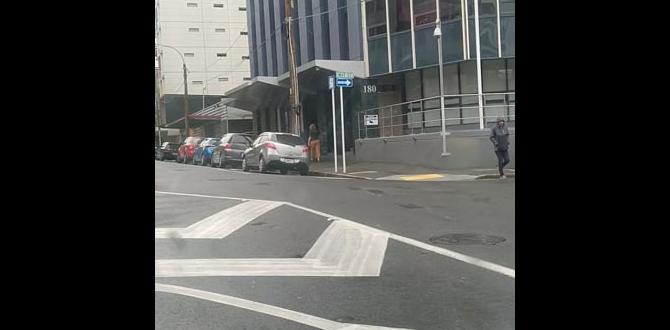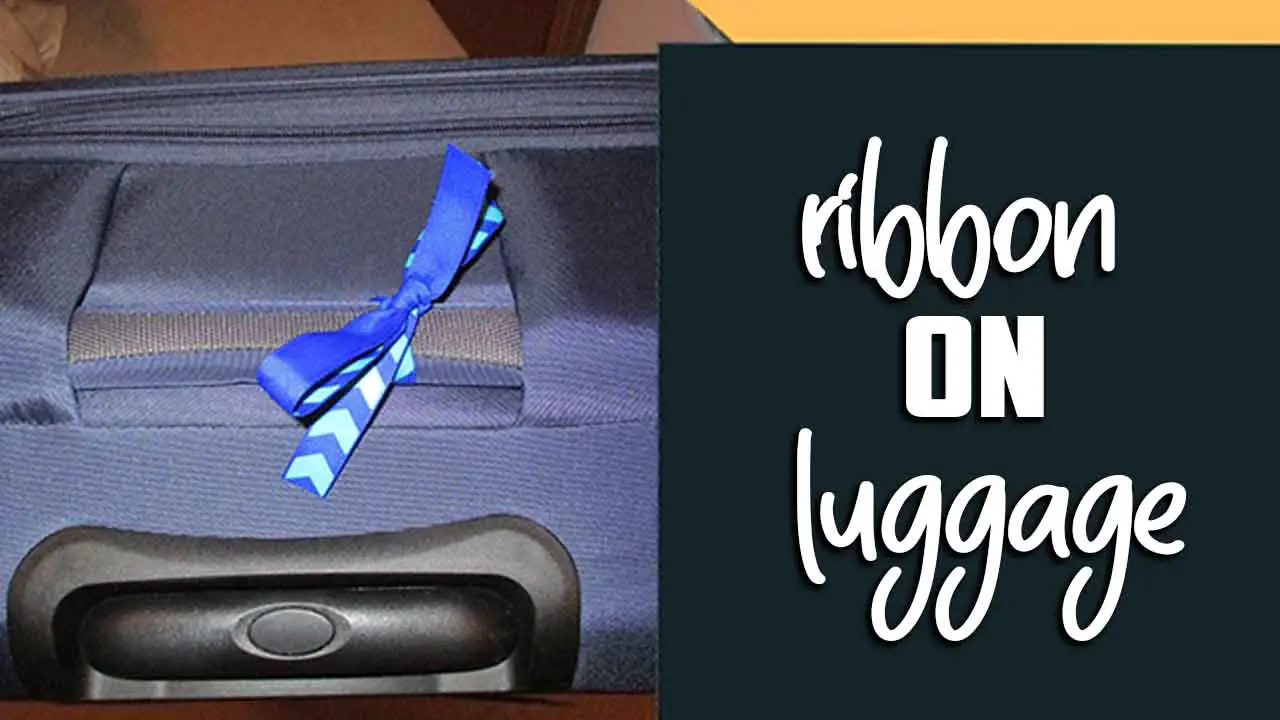Explore Accra affordably with smart planning! Save money on accommodation, food, and transport by choosing local options and understanding the city’s rhythm. This guide offers essential tips for an enriching, budget-friendly Ghanaian adventure.
Accra, Ghana’s vibrant capital, offers an incredible mix of bustling markets, rich history, and pulsating culture. But planning a trip, especially on a budget, can sometimes feel a little overwhelming. You might be wondering how to experience the best of Accra without breaking the bank, or perhaps you’re concerned about navigating a new city comfortably and affordably. Don’t worry, I’ve got you covered! This guide will walk you through practical, easy-to-follow tips to make your Accra adventure both memorable and light on your wallet. Get ready to discover Accra’s magic without the financial stress!
Planning Your Accra Adventure on a Budget
Embarking on a journey to Accra doesn’t have to drain your savings. With a little smart planning, you can experience the heart and soul of this dynamic city while keeping your expenses in check. It’s all about making informed choices that align with your travel style and budget.
When to Visit for Budget Travelers
Timing your visit can significantly impact your expenses. Accra experiences distinct seasons, and avoiding the peak times can lead to better deals on flights and accommodation. Generally, the shoulder seasons offer a good balance of pleasant weather and lower prices.
- Dry Season (November to March): This is the most popular time to visit due to sunny skies and less humidity. However, prices for flights and hotels tend to be higher. If you’re aiming for budget travel, consider visiting towards the very beginning or end of this season.
- Green Season (April to October): This period sees more rainfall, especially from June to September. While there can be occasional heavy downpours, they often don’t last all day. The advantage? Significantly lower prices for accommodation and fewer crowds. If you don’t mind a bit of rain, this is an excellent time for budget travelers.
Getting Your Visa and Travel Documents
Before you even think about packing, ensure your travel documents are in order. For many nationalities, a visa is required to enter Ghana. Research the requirements well in advance to avoid last-minute rushes and potential fees.
- Check Official Sources: Always refer to the official website of the Ghanaian Embassy or Consulate in your country for the most up-to-date visa information and application procedures. This ensures you have accurate and reliable details. You can often find this information on government sites like the Ghana Embassy portal.
- Apply Early: Visa processing times can vary. Applying at least 1-2 months before your departure date is recommended to avoid any unforeseen delays.
- Required Documents: Typically, you’ll need a valid passport (with at least six months of validity remaining), completed visa application form, passport-sized photos, proof of accommodation, and sometimes proof of onward travel or sufficient funds.
Setting a Realistic Daily Budget
Having a clear daily budget will help you manage your spending effectively. Consider your spending habits for accommodation, food, transport, activities, and miscellaneous items. It’s always a good idea to add a small buffer for unexpected expenses.
Here’s a sample breakdown you can adapt:
| Category | Estimated Daily Cost (USD) | Notes |
|---|---|---|
| Accommodation | $15 – $40 | Budget guesthouses, hostels, or affordable Airbnb rooms. |
| Food & Drinks | $10 – $25 | Eating at local chop bars and street food stalls. |
| Local Transport | $5 – $15 | Tro-tros, city buses, and occasional taxis. |
| Activities & Entrance Fees | $10 – $30 | Museums, historical sites, and cultural experiences. |
| Miscellaneous (souvenirs, tips, etc.) | $5 – $15 | Buffer for small purchases or unforeseen needs. |
| Total Estimated Daily Budget | $45 – $125 | This is a flexible range and can be adjusted. |
Smart Accommodation Choices in Accra
Where you stay can make a huge difference to your budget and your overall experience. Accra offers a range of accommodation options, from luxurious hotels to more budget-friendly guesthouses and hostels. For those on a tight budget, focusing on local hospitality is key.
Hostels and Budget Guesthouses
Hostels are becoming increasingly popular in Accra, offering dormitory-style beds or private rooms at very affordable rates. They are also great places to meet fellow travelers. Budget guesthouses, often run by locals, provide a more personal touch and can be surprisingly comfortable.
- Look in Areas like Osu, Dansoman, or Asylum Down: These neighborhoods often have a good selection of budget-friendly options away from the most expensive tourist zones.
- Read Reviews: Websites like Hostelworld or Booking.com are invaluable. Look for recent reviews that mention cleanliness, safety, and the general atmosphere.
- Consider Long-Term Stays: If you plan to stay for an extended period, inquire about potential discounts for weekly or monthly bookings.
Affordable Airbnb Options
Airbnb can sometimes offer great value, especially if you’re traveling with a small group or prefer a more private setting than a hostel. Look for rooms in shared apartments or entire small apartments/studios.
- Filter by Price: Use the price filters on Airbnb to narrow down your options.
- Check Location Carefully: Ensure the Airbnb is well-connected by public transport or is within walking distance of areas you want to explore.
- Assess Amenities: Does it have air conditioning (a must for some!), Wi-Fi, and a kitchen (to save on eating out)?
Eating Well on a Budget: Accra’s Culinary Delights
Ghanaian cuisine is delicious and diverse, and thankfully, you don’t need a huge budget to enjoy it. The key to eating affordably in Accra is to embrace local eateries and street food.
The Charm of Chop Bars
“Chop bars” are informal, local restaurants where you can enjoy authentic Ghanaian dishes at incredibly reasonable prices. They are the heart of everyday dining for many Ghanaians and offer a true taste of the country.
- Popular Dishes to Try:
- Jollof Rice: A beloved West African rice dish cooked in a rich tomato-based sauce.
- Waakye: Rice and beans, often served with various stews and shito (a spicy pepper sauce).
- Banku with Tilapia: Fermented corn and cassava dough served with grilled fish and hot sauce.
- Fufu: A staple made from pounded cassava and plantain, usually served with a rich soup.
- How to Find Them: They are scattered throughout the city. Look for busy spots where locals are eating – that’s usually a good sign!
- Hygiene Tips: While generally safe, it’s always wise to eat at busy chop bars where food turnover is high. Ensure your food is cooked thoroughly.
Street Food Savvy
Accra’s street food scene is vibrant and offers quick, tasty, and very cheap meals. Be adventurous and try some of these popular options.
- Grilled Meats and Fish: Marinated skewers of chicken, beef, or fish are common and delicious.
- Khebabs: Local versions of kebabs, often served with bread or fried plantains.
- Fried Snacks: Items like “kelewele” (spicy fried plantains) or small fried dumplings are widely available.
- Fruits: Fresh, local fruits like mangoes, pineapples, and bananas are abundant and incredibly affordable, especially from street vendors.
Traveler’s Note: When trying street food, look for vendors who appear clean and busy. Opt for food that is cooked fresh in front of you.
Navigating Accra: Budget-Friendly Transportation
Getting around Accra can be an adventure in itself, and thankfully, there are very economical ways to do it. Understanding the local transport system is crucial for budget travelers.
The Tro-Tro Experience
Tro-tros are the backbone of public transportation in Accra. These are shared minibuses that operate on fixed routes, though they can be a bit chaotic and crowded. They are incredibly cheap and offer a genuine local experience.
- How to Use Them: You’ll need to know your destination or the general direction. Look for tro-tros with signs indicating their route. Signal the driver when you want to board.
- Paying Your Fare: Fares are paid to the conductor (mate) or the driver, usually in cash. Keep small denominations handy.
- Comfort Level: Be prepared for close quarters and a lively atmosphere. They can get hot, so carrying a small portable fan can be a lifesaver. Sometimes, for longer journeys or if carrying specific items like travel-friendly adult diapers for comfort, securing a bit more personal space might be worth a slightly higher fare or considering an alternative if comfort is paramount.
- Safety: While generally safe, be mindful of your belongings, especially when boarding and alighting.
Taxis and Ride-Sharing Apps
While tro-tros are the cheapest, metered taxis or ride-sharing apps like Uber and Bolt can be more comfortable and convenient, especially for direct routes or late-night travel. They are more expensive than tro-tros but still affordable compared to taxis in many Western cities.
- Negotiate Fares: If using a regular taxi without a meter, agree on the fare before you start your journey.
- Use Apps for Transparency: Uber and Bolt provide upfront fare estimates and a record of your journey, which can offer peace of mind. Consider these for comfort and safety after a long day of exploring.
Walking and Okadas (Motorcycle Taxis)
For short distances within neighborhoods like Osu or Jamestown, walking is a great way to explore and soak in the atmosphere. Okadas offer a fast, albeit riskier, way to get around. For those prioritizing safety, especially if you have young children or require specific personal care items, it’s often best to stick to taxis or ride-sharing services.
Affordable Sightseeing and Activities
Accra is rich in history and culture, and you don’t need to spend a fortune to experience its highlights. Many of its most compelling attractions are either free or have very reasonable entrance fees.
Must-Visit Affordable Attractions
- Independence Square (Black Star Square): A national monument and a symbol of Ghana’s independence. It’s free to visit and explore the surrounding grounds.
- Kwame Nkrumah Mausoleum and Memorial Park: Dedicated to Ghana’s first president, this is a significant historical site. The entrance fee is nominal.
- National Museum of Ghana: Learn about Ghana’s history, art, and culture. Check for current opening times and fees.
- Makola Market: Immerse yourself in the vibrant chaos of Accra’s largest and busiest market. It’s a fantastic place for people-watching and experiencing local life. While browsing is free, be prepared for enthusiastic vendors if you decide to shop.
- Jamestown: Explore this historic fishing district, characterized by its colonial architecture, vibrant street art, and bustling harbor. It’s a perfect spot for a budget-friendly stroll and to witness daily life.
- Artists Alliance Gallery: This gallery showcases contemporary Ghanaian art and is a great place to appreciate local talent. The entry fee is usually minimal.
Free and Low-Cost Cultural Experiences
Beyond the paid attractions, Accra offers plenty of free ways to engage with its culture.
- Wander Through Local Neighborhoods: Explore areas like Osu for its unique architecture and lively streets, or the aforementioned Jamestown.
- Attend Local Events: Keep an eye out for free community events, street performances, or music happening in public spaces.
- Visit Art Centers: Some smaller art centers or craft markets might offer free entry to browse.
- Enjoy the Beaches (with caution): While some beaches might have small entry fees, enjoying the coastline and the atmosphere can be a low-cost activity. Be aware of strong currents and always swim responsibly.
For those traveling with children who might need ongoing care, or adults who require discreet personal support, planning for activities that accommodate these needs is key. For example, choosing a beach with lifeguards or ensuring venues have accessible facilities can make a big difference in ensuring a comfortable and stress-free experience for everyone.
Tips for Shopping and Souvenirs on a Budget
Bringing home a piece of Ghana is a wonderful part of traveling. Accra offers various shopping opportunities, from bustling markets to more curated shops. You can find great souvenirs without overspending.
Where to Shop Smartly
- Makola Market: As mentioned, this is the place for everything. You can find fabrics, clothing, crafts, spices, and more. Be prepared to haggle!
- Arts Centre (Centre for National Culture): Offers a wide range of traditional Ghanaian crafts, art, and souvenirs. Prices are often fixed but can still be good value.
- Smaller Local Markets: Explore neighborhood markets for unique finds and a more authentic shopping experience.
- Osu Oxford Street: While it has modern shops, you can also find local craft stalls here.
Haggling Etiquette
Haggling is expected in markets like Makola. Approach it with a smile and a friendly attitude. Start by offering about 50-60% of the asking price and be prepared to meet somewhere in the middle. If the price isn’t right for you, it’s perfectly fine to walk away politely.
What to Buy as Souvenirs
- Kente Cloth: Iconic Ghanaian fabric, available as larger pieces or smaller items like scarves and bags.
- Adinkra Symbols: These symbolic Ghana alphabet symbols are found on fabric, wood carvings, and jewelry.
- Beadwork: Ghana is famous for its beautiful glass beads.
- Wooden Carvings: Statues, masks, and decorative items.
- Spices and Shea Butter: Local ingredients make for great, practical souvenirs.
Staying Connected and Safe
Keeping in touch and ensuring your safety are paramount, no matter your budget.
Connectivity
Purchasing a local SIM card is the most cost-effective way to stay connected. Telecommunication providers like MTN, Vodafone, and AirtelTigo offer affordable data packages readily available at street vendors or official shops.
- Purchase a SIM Card: You’ll need your passport for registration.
- Data Bundles: Choose a data bundle that suits your needs – daily, weekly, or monthly options are available.
- Public Wi-Fi: Some hotels, cafes, and restaurants offer free Wi-Fi, but it’s not always reliable or secure.
Safety Tips for Budget Travelers
Accra is generally a safe city for tourists, but like any major urban center, it’s wise to be aware of your surroundings and take precautions.
- Keep Valuables Secure: Use a money belt or a secure bag, and avoid displaying expensive jewelry or electronics.
- Be Wary of Scams: Be polite but firm if approached by individuals offering unsolicited help or tours, especially around tourist areas.
- Travel in Groups or Well-Lit Areas at Night: If possible, avoid walking alone in unfamiliar areas after dark.
- Inform Someone of Your Plans: Let your hotel, a friend back home, or a travel companion know where you are going.
- Trust Your Instincts: If a situation feels uncomfortable or unsafe, remove yourself from it.
- Health Considerations: While not strictly a safety tip, being prepared for travel health needs is crucial. For instance, if you or a traveling companion requires adult or child diapers for any reason, ensure you have an adequate supply. Consider discreet, high-absorbency options for comfort and confidence during long days of exploring. Knowing where to find local pharmacies or health facilities in case of minor issues can also be reassuring. The World Health Organization (WHO) page for Ghana offers useful health advisories.






